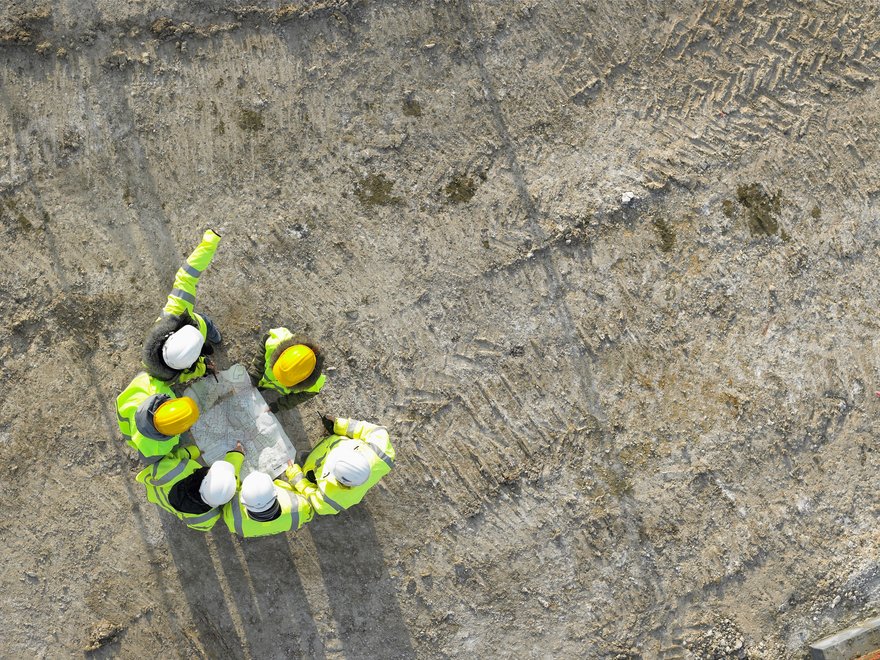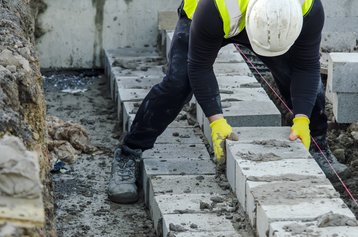Data center growth is reaching ever loftier new heights.
New capacities and new markets are being launched and targeted every day. But this growth relies on a forgotten industry that has failed to evolve and is saturated with age-old working practices, gender stereotypes, and poor workforce treatment.
That is the construction industry; the sector at the bottom of the supply chain that is satisfying every hyperscaler’s building frenzy. What may be some of the greatest developments and milestones for hyperscalers and data center operators, is now taking its toll on construction workers.
The construction industry has devastating rates of suicide, which stand at four times the national average in both the US and the UK. US public health organization CDC (Centers for Disease Control and Prevention) said in a recent report that 53.3 out of every 100,000 workers commit suicide. In comparison, the average rate of suicide in the US is just 12.93 per 100,000 people.
On The Tools, an online community platform for tradespeople, said that 93 percent of UK tradespeople had been affected by mental health at some point in their career, with 73 percent still being affected.
Despite undergoing around four industrial revolutions, the construction industry is now well overdue for another overhaul for the benefit of its long-suffering workforce.
Wash, rinse, repeat
We all live in the built environment. Construction has an impact on us all. When it comes to data centers, however, they are now “at the tip of the spear when it comes to the fifth industrial revolution,” says Nancy Novak, chief innovation officer at US operator Compass Datacenters.
Compass Datacenters has 19 data centers, both operational and under construction, across eight markets in three countries. And, like everyone else in the industry, has been under pressure to build out and expand as the world grows hungrier for compute, artificial intelligence, and cloud computing.
It is not a coincidence that both Novak and Alan Blanchett, group SHEQ director at McLaren, used the term ‘push, push, push’ to describe the pressures of productivity placed on the shoulders of construction workers. McLaren, based in the UK and the UAE, builds on average 200MW data center projects for hyperscalers, colocation firms, and enterprise customers.
“The data center industry has this way of going wash, rinse, repeat, get better,” says Novak. Ironically, at the bottom of the supply chain, the construction industry has failed to improve to meet the needs of its workforce.
That being said, Sam Downie, managing director at mental health charity Mates in Mind, explains that construction has now addressed physical safety, with the risk of physical accidents more or less ‘grappled with.’ Blanchett points out: “We tend to shout safety and whisper health.” McLaren is now actively incorporating mental health initiatives into its health and safety program.
Finally, mental health is now becoming considered as important as physical health. And it’s about time. Suicide is the biggest killer in the industry, leading to more deaths than falls from height.
The perfect storm
The construction industry is “the perfect storm” for poor mental health, says Charlotte Brumpton-Childs, national officer for construction and engineering at UK workers’ union GMB. She explains the sector is rife with job instability, unpredictability, and working far away from home. These contributing factors have now become intrinsically linked with the construction profession.
Rachel Neal, VP of global safety at Compass Datacenters, adds that the average worker in the US is contracted to 12 sites a year.
Whilst these are factors that could be prevalent in any profession, these triggers are exacerbated in the construction industry and those pressures often mount on individuals towards the end of the supply chain, says Downie.
Like any other industry, things go wrong. However, the sector is poorly equipped to combat these adversities. For instance, in the case of an injury, a worker is often left choosing between paying their mortgage and taking time off, because of lack of proper sick pay and looming job insecurity, says Brumpton-Childs.
Charities such as Band of Builders have tried to alleviate some of the pressures caused by injury. Gavin Crane, CEO of the UK-based charity, explains the organization was initially set up to provide tradespeople with practical help following injury. This could mean building a stair lift, finishing housing extensions, or general house maintenance. Following Covid-19, the charity is now expanding its offerings to mental health support and support helplines, and in-person groups.
A chicken and egg conversation
The construction workforce in both the UK and the US is an aging one, with a third of the workforce in the UK being over 40 years old. Crane says in the next decade, 500,000 workers are set to retire, leaving gaps to plug and fill.
However, the aging workforce could also explain some of the macho and outdated ideals within the sector. Blanchett explains that when he joined the industry, speaking about emotions and feelings was unheard of, particularly in a male-dominated sector like construction. “They’d say just get on with it, or ‘man up,’” he says.
A recent and scathing article by right-wing British paper The Daily Mail accused builders of becoming “woke, sensitive souls more likely to enjoy yoga, muesli, listening to Radio 4, and sharing their feelings.” Such sentiments have prevented the sector from addressing its largest and most silent killer.
Brumpton-Childs asks: “Is it a macho environment because it is dominated by men, or is it so dominated by men because it is a macho environment?”
Downie explains that dismantling a male-dominated environment is not just about ‘landing women in a sector and making it better.’ Experience has shown adding women into a workforce would in reality suppress women into conforming to stereotypical ideals. On top of that, women are not exempt from the pressures of construction; women in construction are 28 percent more likely to experience poor mental health, according to research by On The Tools.
At Compass Datacenters, Neal and Novak say that dismantling stereotypes and masculine ideals begins with language. The company has changed the language used to address its workforce, replacing ‘foremen’ for the gender-neutral term ‘frontliner.’
“It doesn’t matter who you are or where you come from, if you’re a frontliner, you’re a frontliner,’” says Neal. Frontliner encompasses all middle-management positions and supervisors. On The Tools research has said in the UK, tradespeople in those middle-management roles are the most susceptible to poor mental health.
But, it is more than just a fancy title. Compass’ initiative also equips its workforce with the language to discuss emotions and sentiments that have previously been banished by the industry. Neal explains the program encourages ‘humility’ and ‘vulnerability’ through dedicated workshops, so that frontliners not only know how to share complex feelings, but also how to respond to their colleagues.
As Blanchett points out: “We spend most of our time at work,” and so interactions amongst the workforce can have a large impact on our mental health. On the flipside, he explains, that it is our colleagues who have the best chance at noticing and identifying changes in behavior and who are best equipped to start conversations around mental health. He says at McLaren staff are being encouraged to check in on one another.
“The aim is not to make everyone a counselor,” he says, but to spread awareness so that people at risk can be referred to professionals and helped at the earliest stage. McLaren still offers formal mental health training to its workforce and an all-over health check which includes health, hygiene, and mental well-being.
Out with the beer, in with the brew
“We’re not reinventing the wheel,” says Crane, speaking on the Band of Builders’ ‘Big Brew’ initiative. Based on the Macmillan coffee morning, Big Brew creates an environment for tradespeople to talk, socialize, and be vulnerable. Crane explains the pub was once a popular space to ‘get things off your chest’ and decompress. However, with alcoholism amongst tradespeople on the rise and pub culture decreasing in popularity, there is a need to create another space. Brumpton-Childs adds that pub culture often fosters unhealthy relationships with addiction and creates alcohol dependence.
Mobile tradespeople working on sites away from home often have access to welfare facilities. But, as Crane points out, these facilities are inconsistent in the services they offer. Brumpton-Childs explains that workers could be walking more than half an hour to reach facilities, cutting into their respite. At McLaren, Blanchett says there has been an active effort to make these facilities a real place of relaxation and decompression, removing posters about ‘falls’ and health scares, and encouraging non-work related conversation.
Starting and managing the conversation is one thing, but there is an increasing need for government intervention, says Crane. He says that given construction contributes nine percent of GDP in the UK, it seems bizarre that there is no dedicated government department for the industry. Government intervention would also help to ensure mental health initiatives are successfully passed down the supply chain.
Without construction, the economy in any country is in danger of not growing. “Construction impacts us all. We all want homes, we all want hospitals, we all want construction.” It’s high time the forgotten industry was remembered.
If you are struggling with mental health, you can call the National Suicide Prevention Helpline UK on 0800 689 5652 or Samaritans on 116 123. In the US, The 998 Suicide & Crisis Lifeline can be reached by dialing 998.






